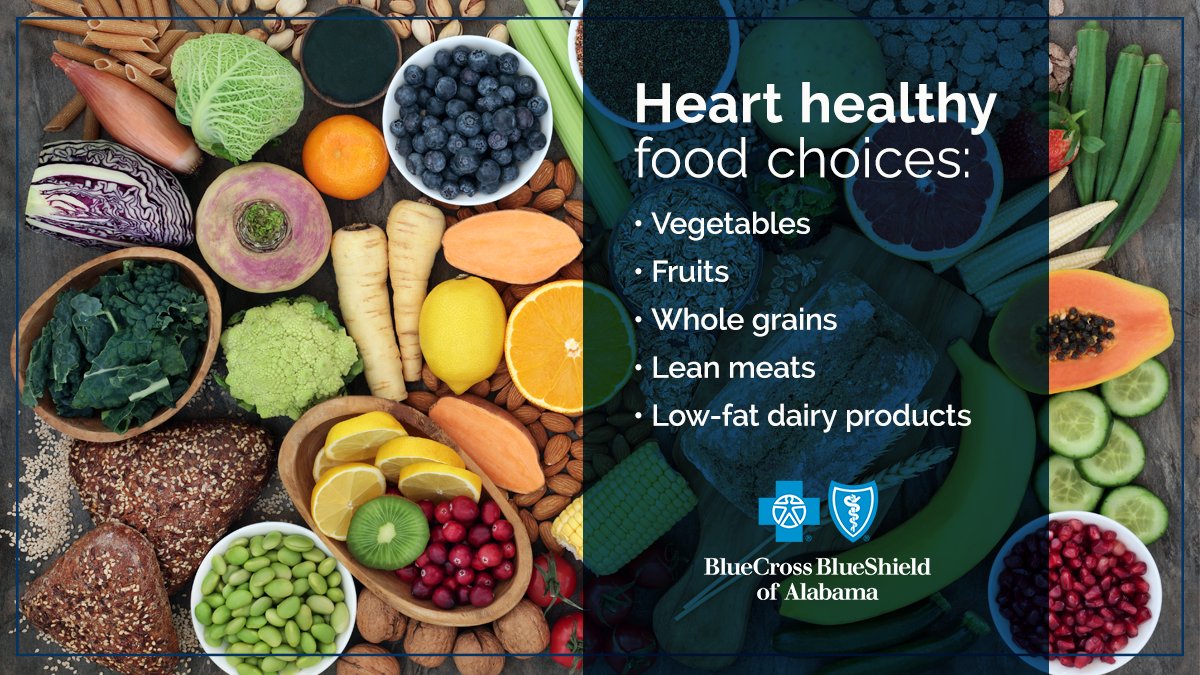
A majority of diabetics should eat lots meat, poultry, seafood, and eggs. However, they should not eat too much sugar or fat. A diet rich in fruits and vegetables as well as whole grains is a good choice for those who are concerned about their diet. Diabetes patients can still enjoy non-vegetarian foods, drinks and beverages. These tips will help them choose a healthy diet that suits the way they live.
For diabetics, salt and flour can be problematic. These ingredients can raise blood pressure and add unnecessary calories to your diet. While you should avoid foods high in sodium, there are still options to incorporate them into your meal plans without having to compromise your diet. Whole foods should be the main ingredient of diabetes diet meals. They are more low in sodium and fat than foods that contain refined sugar. It is important to avoid processed foods, as well as flash frozen foods.

A balanced diet with carbohydrates, proteins and fat is the best way to manage diabetes. You don't have to go overboard with the carbohydrates and healthy oils, but you do want to be mindful of what is best for your body. A balanced diet should contain all three types. Fiber and protein are slowing agents in the digestion process of carbohydrates. While protein and fiber will provide more nutrition and boost blood sugar levels, both will be beneficial. It is crucial to keep track of your food intake and monitor your blood glucose levels if you have diabetes.
Your child's regular diet should dictate the diet of a diabetic. The main focus of this diet is on carbs, as these can spike your blood sugar level. Diabetic diets should avoid breads, pasta, and instead focus on fruits and vegetables. Both fruits, as well vegetables, are rich source of fiber and antioxidants. Consider whole fruits over fruit juices. It is important to avoid eating fruit after meals because they can spike blood sugar levels.
Cooked oatmeal contains soluble fiber, which helps to regulate the blood sugar level and promotes heart health. Oatmeal, which is good for diabetics, is high in fiber. It can lower the body's insulin intake. It's low in calories, high in fiber and low in calories makes it a great choice for diabetics. To reduce your risk of developing type 2, a diabetic diet should include fruits, vegetables, and nuts.

Glycemic Index should be used when determining the diet plan for diabetics. This index ranks carbohydrate-containing foods by their effect on blood sugar. A dietitian may be able to help you choose the best foods for your diabetes. You can also create a diabetes diet that is tailored to your individual needs. A healthy diet and the right nutrition will help you achieve a diabetes-friendly lifestyle. It is important not to eat excessive amounts of any food.
FAQ
Do Men Need A Gym Membership?
A gym membership is not necessary for men. However, your money will be more valuable if you join a gym.
Many gyms offer free trials that let you try the facilities before you pay any fees.
You can use the gym at any time you want, and it doesn't cost anything. You can cancel or modify your membership anytime you feel you don't like it.
Can I go to the gym seven days a week?
You can go to your gym seven days a semaine, but not simultaneously. You need to find a time that you are able to do this without feeling exhausted or drained.
This will help keep you motivated and give you energy for other activities.
You should also ensure that your meals are well-balanced. This will help you not feel tired or slow at the gym.
And lastly, you need to ensure that there isn't anything else competing for your time. If you have children, it is a good idea to avoid going to school on the evenings as they can distract from your workout.
Is it true?
Protein is essential for healthy bones and tissue. Over-consuming protein can result in calcium being excreted through the kidneys. This can lead to kidney stone formation.
It is important to remember that not all people get kidney stones from eating more than 2g protein per kilogram (2.2lbs) of body weight. High amounts of protein can be consumed by some people without causing kidney stones.
By being careful with your sodium intake, you can prevent kidney stones. Sodium helps regulate water balance in the kidneys. High levels of sodium are linked to a greater risk of developing renal stones.
If you have kidney stone, you might also consider reducing your protein intake. Protein provides about half of the daily caloric needs for most adults. You'll lose weight if you reduce your intake of protein.
If you do decide to eat more protein, don't go overboard. You should aim to consume less than 20% of your total calories from protein.
How fast can my body be transformed?
The first step is to change your mind. You have to be willing to change.
Once you have decided that you want to change, then you need to commit yourself to work on your fitness goals for at least 3 months.
You will then need to choose a program that is compatible with your lifestyle.
Also, you need to set realistic goals. You shouldn't waste money on a gym membership that doesn't allow you to put in the effort and time required to reach your goals.
Instead, spend your free time exercising outdoors.
You can lose 1 lb if you walk around the block for one hour each day.
Once you know what your plan is, it's time to start organizing your life in accordance with this plan.
You should make sure you set aside time each morning to exercise and that you take breaks throughout your day to move.
It is important to reward yourself when you reach milestones. You can buy accessories and clothes that reflect your success.
Statistics
- An estimated calorie range for moderately active adult males falls between 2,200 to 2,800 calories per day, depending on age. (eatright.org)
- Get free shipping and 25% off today. (healthline.com)
- Candidates and applicants must pass all four tests at 70% (minimum level) to graduate from Basic Deputy U.S. Marshal (BDUSM) Training. (usmarshals.gov)
- According to the American Academy of Dermatology (AAD), men over 50 are at a heightened risk of developing it. (healthline.com)
- 10 pounds in a month is likely during a lean bulking phase, especially for beginners. (muscleandstrength.com)
External Links
How To
How do I lose weight while working out?
Exercise reduces calories by increasing metabolism, and oxygen consumption.
Exercise at a moderate intensity to safely lose weight.
These are some tips to help you lose fat while working out:
-
Cardio exercises include swimming, running or cycling.
-
Three times per week, exercise for 30 minutes.
-
You can lose weight by adding strength training to the routine.
-
Avoid intense workouts. It is possible to build muscle without destroying muscle tissue.
-
Drink plenty of water during exercise. Water flushes out toxins, and keeps your body properly hydrated.
-
Choose low-fat protein shakes after working out. Protein shakes are great for your muscles and energy.
-
Eat smaller meals throughout the day, so you don't feel hungry between meals.
-
Don't skip breakfast! You can feel tired and slow if you skip breakfast.
-
Take care of your mind. Stressful situations can slow metabolism.
-
Keep a positive attitude. Studies have shown that people who are convinced they are overweight gain more weight than those who feel they look attractive.
-
Get enough rest. It is harder to lose fat if you don't get enough sleep.
-
Keep active. Keep moving every hour.
-
Maintain a healthy diet. You will feel fuller longer if you eat right.
-
Find relaxation techniques. A tense mind doesn't allow your body to release stress hormones that break down muscle tissue.
A balanced diet is one that includes all of the essential nutrients required for growth.
You should eat six small meals per day rather than three large ones. This gives your body more time to digest the food you eat.
To maintain strong bones, you need to consume 500 mg of calcium each day. Calcium can be found as a dairy product such as milk, yogurt and fortified soy drinks, orange juices, cereals, breads, and cereals.
Calcium is found in leafy green vegetables and beans, tofu as well as nuts, seeds, cheese, and seeds.
Vitamin D is required for calcium absorption. Vitamin D is found in certain fortified foods, such as egg yolk and fatty fish.
Vitamin E is crucial for skin health. Vitamin E can be found in vegetable oils as well as wheat germ oil, peanuts and almonds.
Your body requires zinc to function normally and for wound healing. Zinc is found in oysters, legumes, meats, whole grains, and seafood.
Zinc deficiencies can lead to fatigue, decreased appetite, depression, and reduced immunity.
Sugar intake can lead to insulin resistance which causes blood glucose levels to rise. Insulin resistance leads directly to weight gain.
Insulin resistance occurs when the bloodstream is full of free radicals. Free radicals are molecules containing unpaired electrons which cause damage to cells membranes.
Free radicals come mainly from food additives, pesticides, herbicides, preservatives, smoking, air pollution, radiation, chemicals in cosmetics, lotions, and household cleaning supplies.
Free radical damage may lead to cancer, heart disease diabetes, arthritis, asthma and other conditions.
Antioxidants are essential for preventing free radical damage. Antioxidants protect against oxidative damage.
Vitamin C is found in citrus fruits and beta carotene is found in carrots.
Selenium, copper as well as manganese and zinc are some other antioxidant nutrients.
Selenium helps to protect cells against free radicals and oxidative stress. Selenium is also found in Brazil nuts.
Copper protects eyes, brain, lungs and red cells. Copper can be found in meat, shellfish, meat, and organ meats.
Manganese is essential for bone structure. Manganese may be found in brown rice or spinach, bananas and prunes as well raisins, oatmeal and lentils.
Zinc is essential for normal growth, reproduction, wound healing, and average growth. Zn is found in lean cuts of meat, white fish, poultry, and eggs.